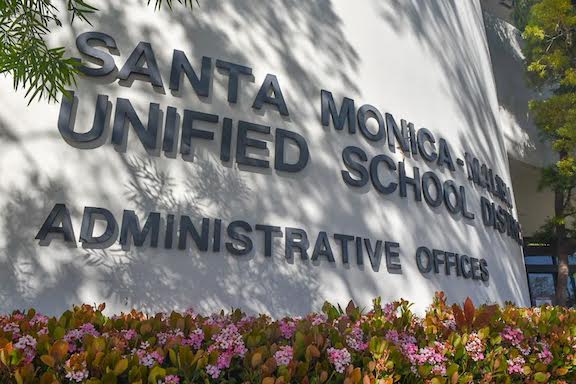
With fentanyl use among teenagers on the rise at an alarming rate the Parent Teacher School Association (PTSA) of Santa Monica High School recently gave a presentation to parents to discuss the dangers of the deadly drug, how teenagers acquire it, and what we can do to help and protect our children. This year three SAMOHS students overdosed on fentanyl, seven in the LAUSD, and one 15-year-old girl died in Hollywood. The fentanyl epidemic is at our doorstep, and many of its victims don’t even realize they’re taking the drug.
“Fentanyl has caused a trail of death across the country,” according to U.S. Attorney Martin Estrada. Los Angeles is a major distribution hub as Mexican cartels have flooded the market with cheaply made counterfeit pills disguised to look like oxycodone, Percocet, Xanax, and Adderall, drugs that teenagers may be trying to get their hands on.
Juli Shamash is a parent who spoke at the PTSA meeting. She lost her son to a drug overdose.
Shamash is the President of the Drug Awareness Foundation that she founded along with her family. In 2018 the mother of three lost her 19-year-old son to a fatal fentanyl drug overdose. He died while in a sober living facility.
“He had struggled with substance abuse disorder for three years. He started smoking pot because he had anxiety,” Shamash explained. When marijuana was no longer effective, her son started drinking cough medicine mixed with soft drinks. He stockpiled over-the-counter Tylenol with codeine which is an opioid. Her teenager was sent to rehab and therapeutic boarding school. After a series of living at home and at sober houses, Shamash’s vulnerable teenager was injured at work and then prescribed a pain medication. His addiction returned as well as treatment.
“You know that feeling you get as a parent when all your kids are safe and happy? It was short-lived.” Shamash’s son died from fentanyl poisoning. And she said it affected her other children, who helped her start her foundation. Shamash was instrumental in getting SB864 (Tyler’s law) passed this year. If someone is taken to the hospital with an OD, they are now given a fentanyl test. Because it is a synthetic opioid, it previously didn’t show up on drug panels looking for narcotics.
Shamash cautioned, “Fentanyl is killing everyone and anyone from longtime users to first timers and people who just want to take a drug on the weekends. It doesn’t matter your race, religion, or how much money you have. Fentanyl is killing so many.”
She also explained how easy it is to get drugs.
“Teenagers are acquiring it through social media channels and friends. Any pill you buy online is most likely counterfeit.” The Drug Enforcement Agency says three out of five pills on the street are laced with enough fentanyl to kill you. “The cartels are not trying to kill people. They want to get people addicted. But they don’t care if some people die along the way,” Shamash commented.
She explained that when people have anxiety or depression, they are often given a prescription, and teens can emulate this.
“A lot of kids died during COVID. They were suffering anxiety, and they probably Googled what to do for anxiety, or they know, ‘oh, my mom takes Xanax, ’ and they think what they’re buying online is the real pill, but it’s not and there’s none of the real pill in it.” She explained street drugs are mostly filler and fentanyl designed to look like other drugs. “There’s an Adderall shortage now, and I’m terrified students who feel they need it are going to get it online, and it’ll kill them.”
Her tips for parents are to monitor children’s cash apps because that’s often how kids pay for drugs. She said it’s easy to score online, and the drugs are delivered “like pizza.”
“You can find it on Craigslist and even Snapchat.” And teens typically are not searching for fentanyl. They’re looking for Percocet, Oxycontin, Xanax and Adderall.
I tell parents to talk to your kids. They have to hear it from multiple sources. Tell them to never take any pills, any medicine that’s not from your doctor. Saying “not my child’ are the three most dangerous words.” She suggests having Narcan, a reversal agent for opioids, on hand. It’s available at SMMUSD secondary schools and in drug stores. Endoverdose.net can help you acquire it, along with DrugAwarenessFoundation.org.